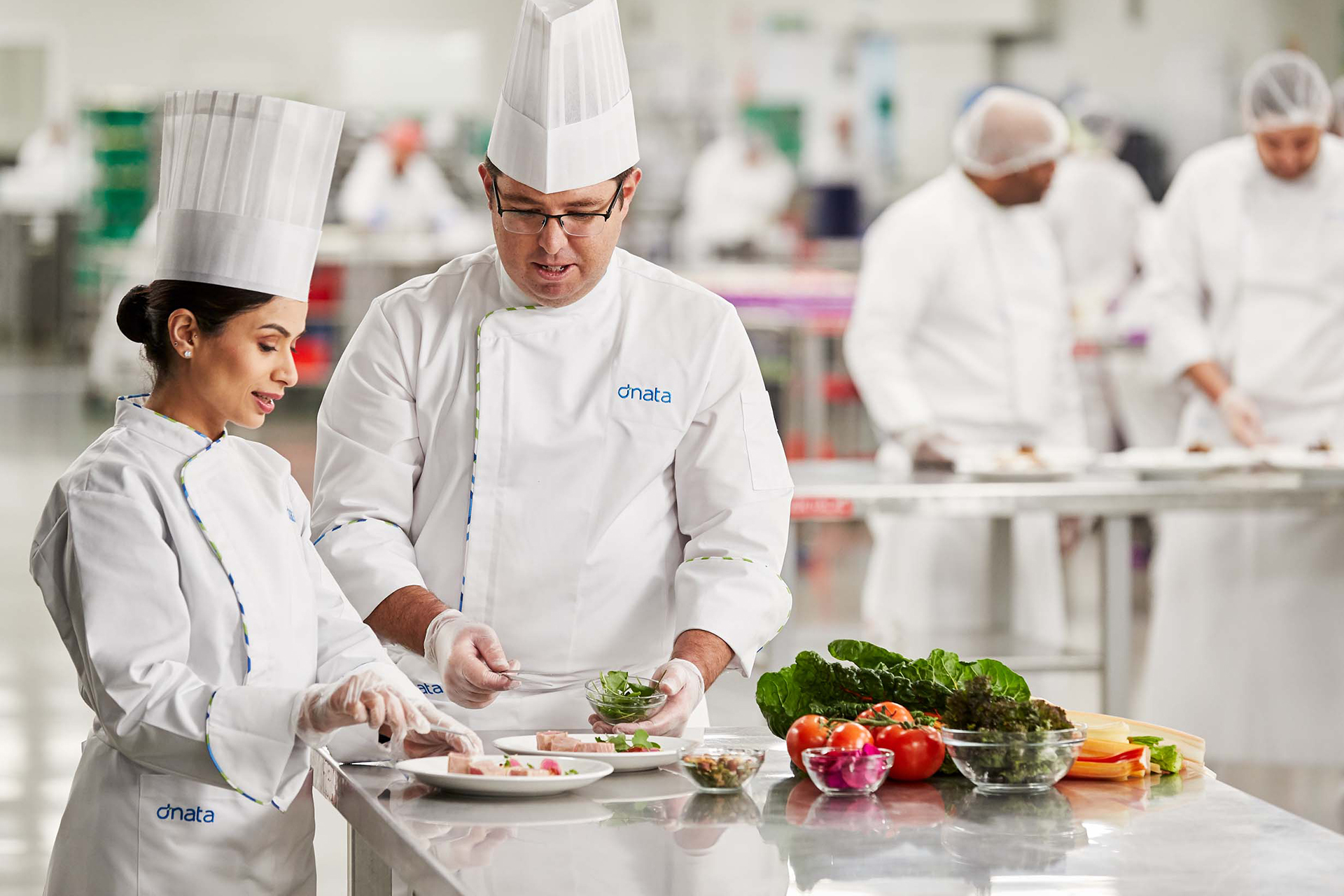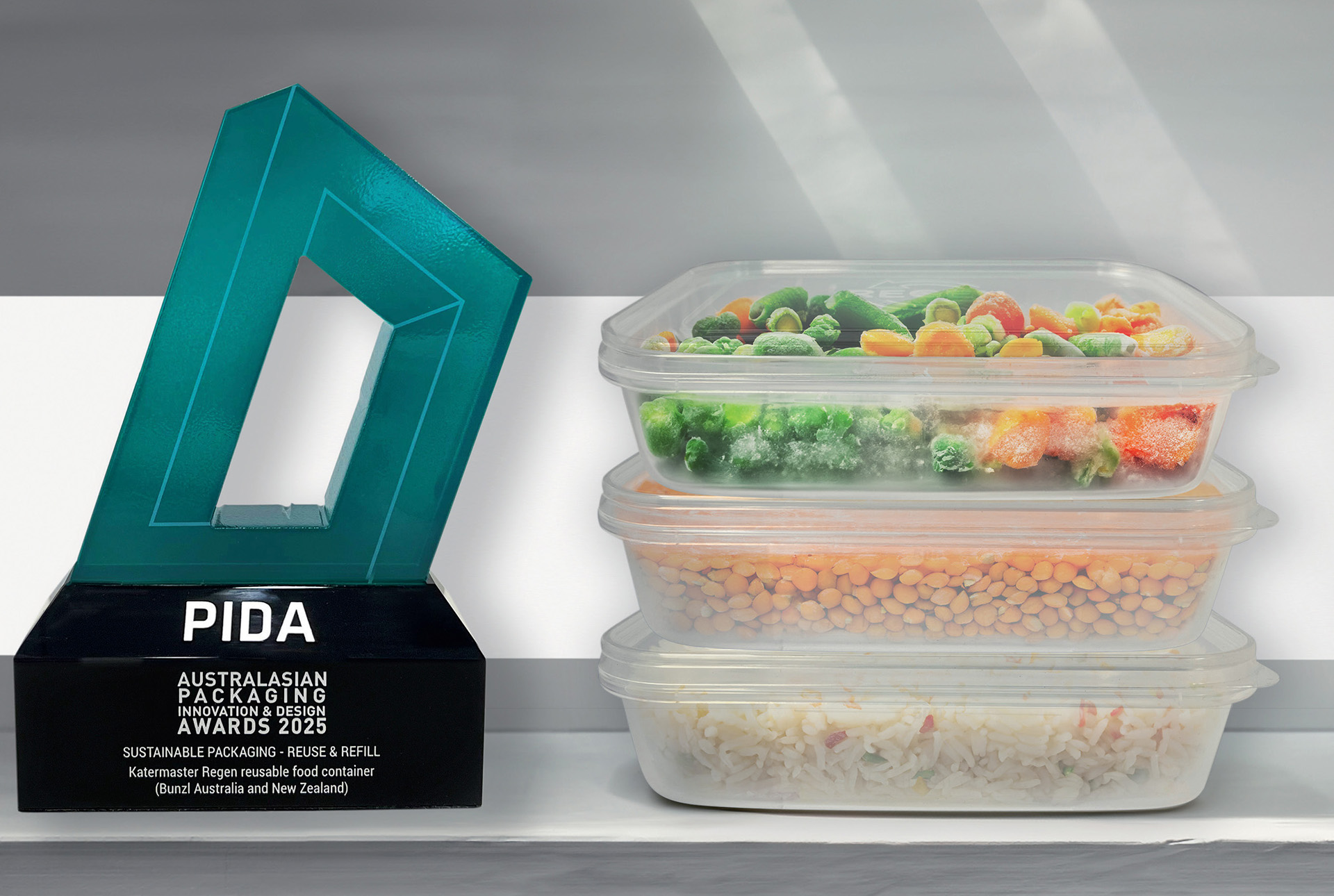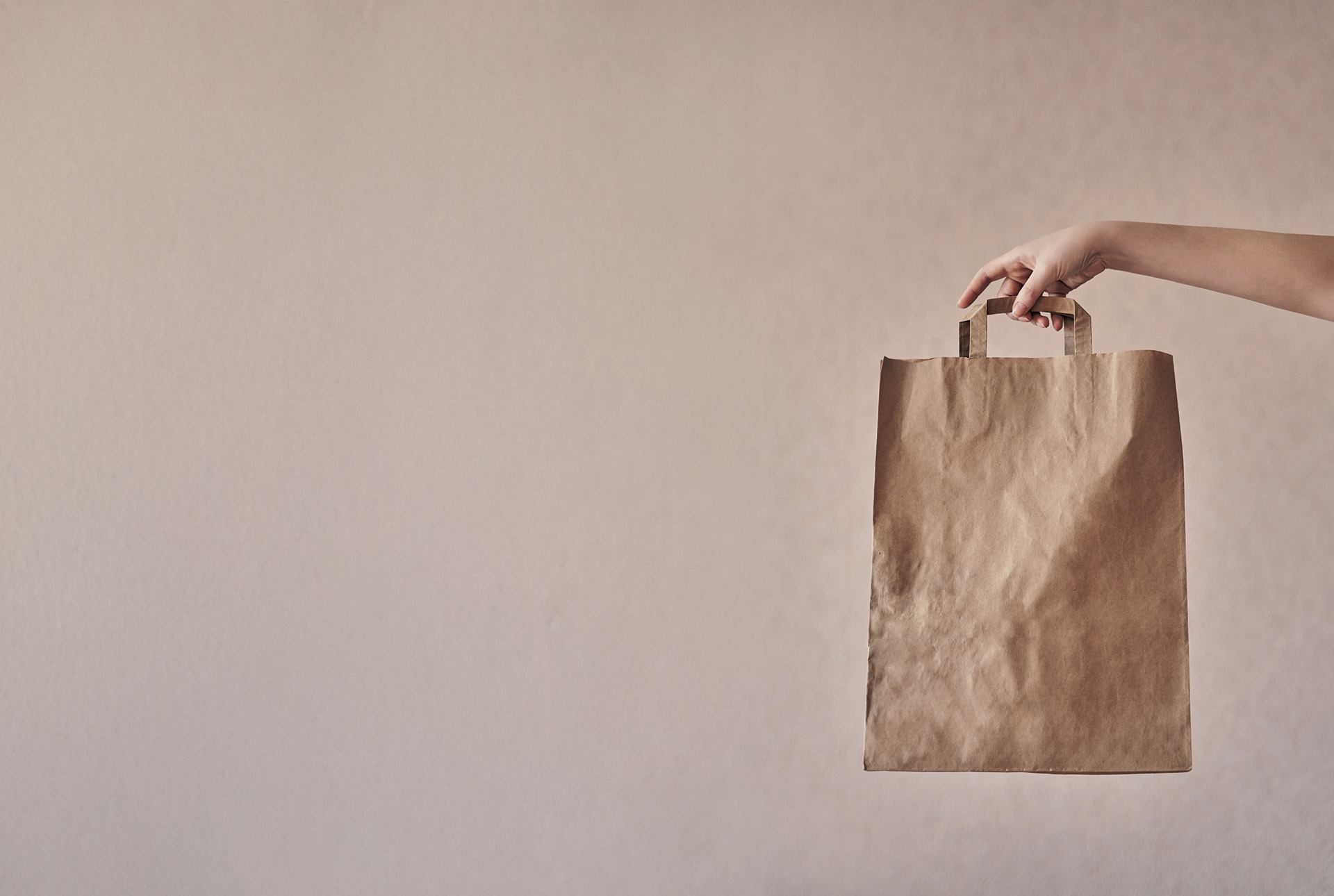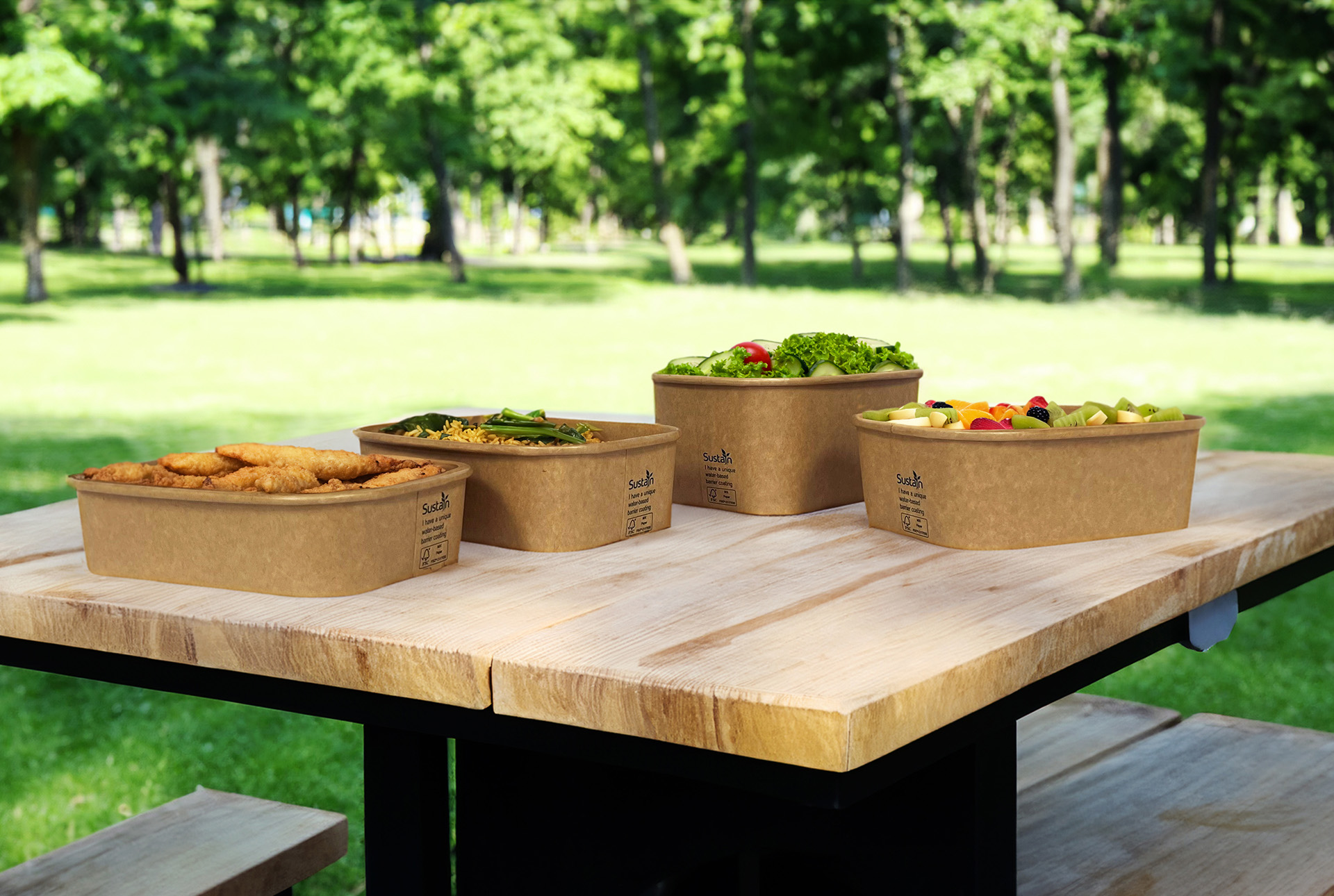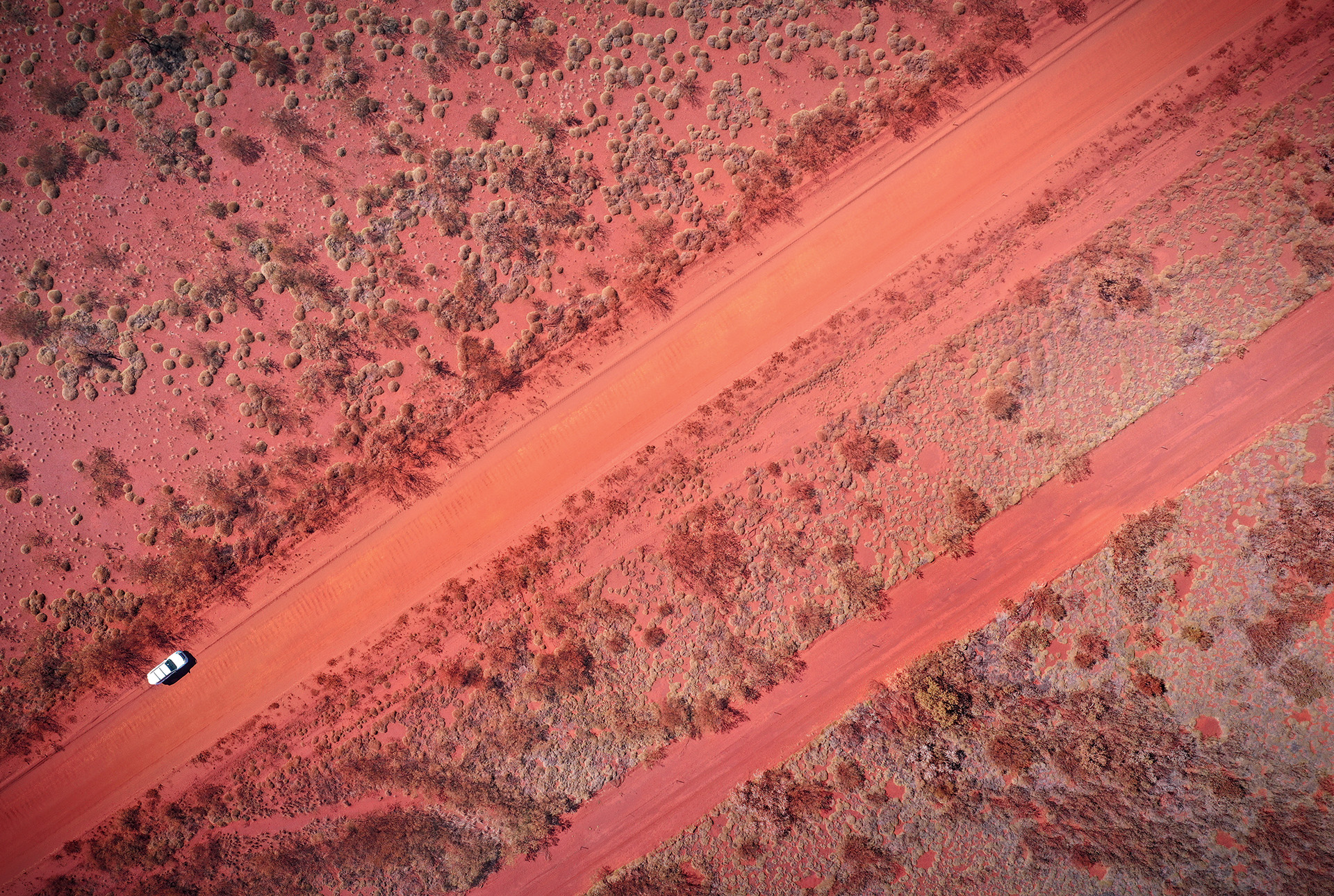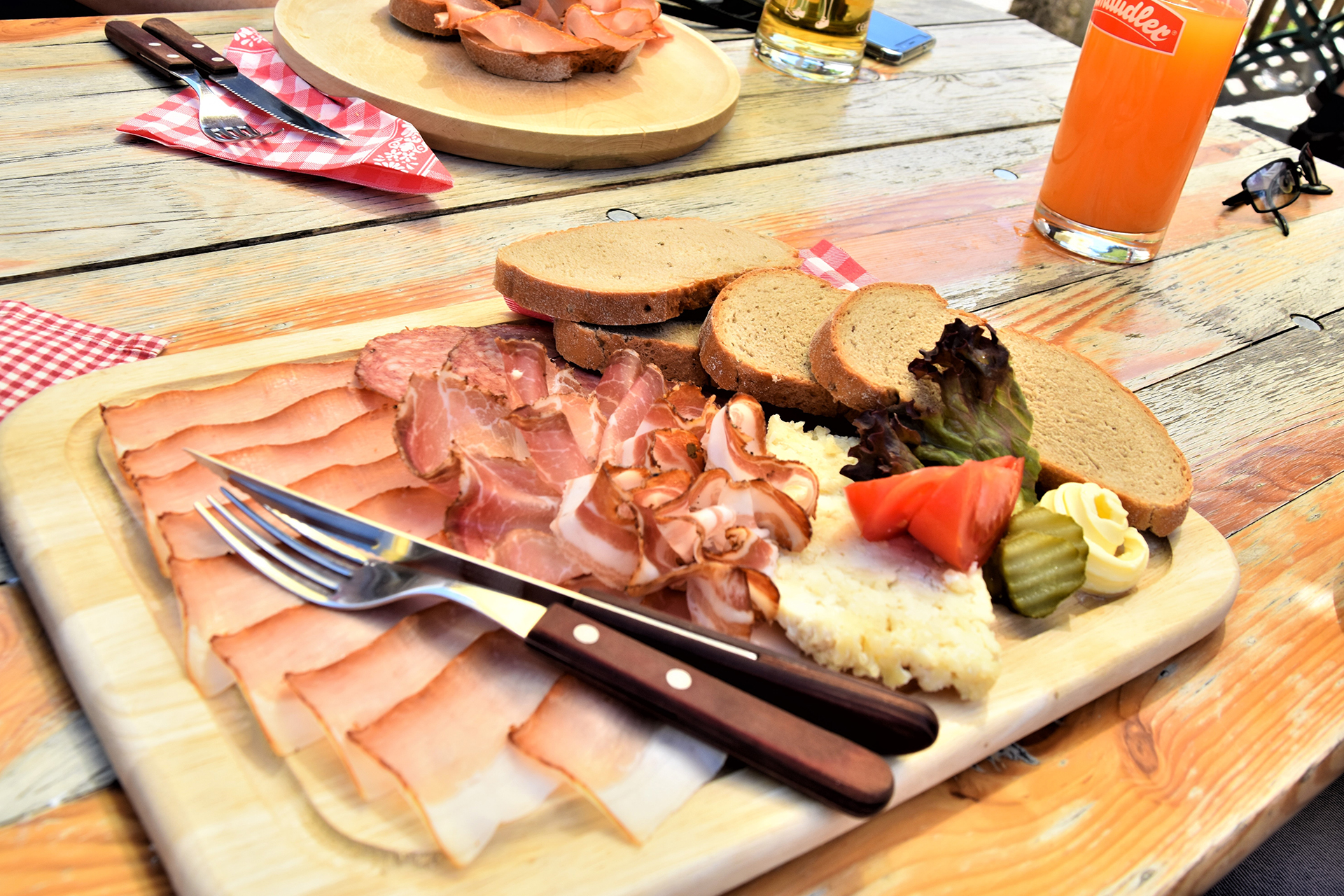During his 14 years at the helm of Australia’s largest in-flight caterer, Robert Smithson has observed a major shift in passenger behaviour. “Flyers have become much more inquisitive about food,” he says. “If you go back 10 or 15 years, people wouldn’t have asked: ‘Is it grain- or grass-fed beef?’ That knowledge just wouldn’t have been there. But today, people want to know.” Smithson says his employer, dnata catering – a wholly owned subsidiary of the Emirates Group – has succeeded in recent years by evolving in line with passengers’ preferences. “We’ve gone from that very basic ‘meat and three veg’ style of airline meals to a menu offering that’s not dissimilar to what you’d see in any good restaurant, particularly in the First and Business Class cabins, where we’re really pushing the boundaries of what we’re serving.”
Today, dnata catering Australia employs 4000 people in nine cities and produces 64 million meals a year for more than 45 airlines. “When I started with the company, airlines would tell us what to do,” Smithson says. “Now, they lean on our expertise.” In his role as General Manager Culinary, Smithson oversees a team of 10 corporate chefs who work closely with each airline to devise custom menus. “Each airline has a different degree of involvement,” he says. “Qatar, for example, has a celebrity-chef program, so they’ll come to us with their latest chef and we’ll educate that chef on the difference between a restaurant and a plane. Other airlines will just say: ‘This is the budget, this is the equipment we have on board – you guys do it all.’”
So, where does Smithson begin when an airline asks him to start from scratch? “Delicate food just doesn’t work on a plane, particularly if you’re eating during turbulence,” he says. “You’ve also got to remember that nothing is really cooked on a plane – it’s reheated. The food needs to withstand that reheating process. So, for meat, we look at secondary cuts that can stay tender.”
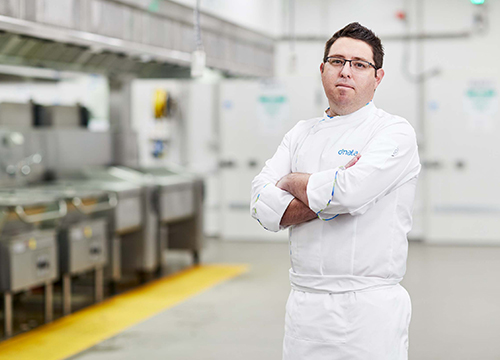
Smithson also avoids raw fish and anything that needs to stay crisp, such as pastry or French fries. But, contrary to popular belief, he and other airline caterers don’t over-season every dish. “People have this idea that being on a plane messes with your tastebuds,” he says. “But that’s not really true. It’s all about the cabin pressure. Back in the 1960s and 1970s with the older generation aircraft, you did get some type of tastebud suppression and dehydration, but the new aircraft are so well pressurised that it’s not an issue.”
For Smithson, dnata catering is the culmination of a notable career which began in the 1990s in a small club on the northern coast of NSW. He picked up the NSW TAFE Award of Excellence in his first year of training and hasn’t looked back, working for prestigious corporate clients such as Captain Cook Cruises, Hilton and Southern Cross University. He has also guest mentored on Masterchef NZ. “I worked incredibly hard and actually joined dnata catering to try to take it easy!” he says, laughing. “But the business grew and grew. In hindsight, I’m very glad I’ve been part of this journey.”

